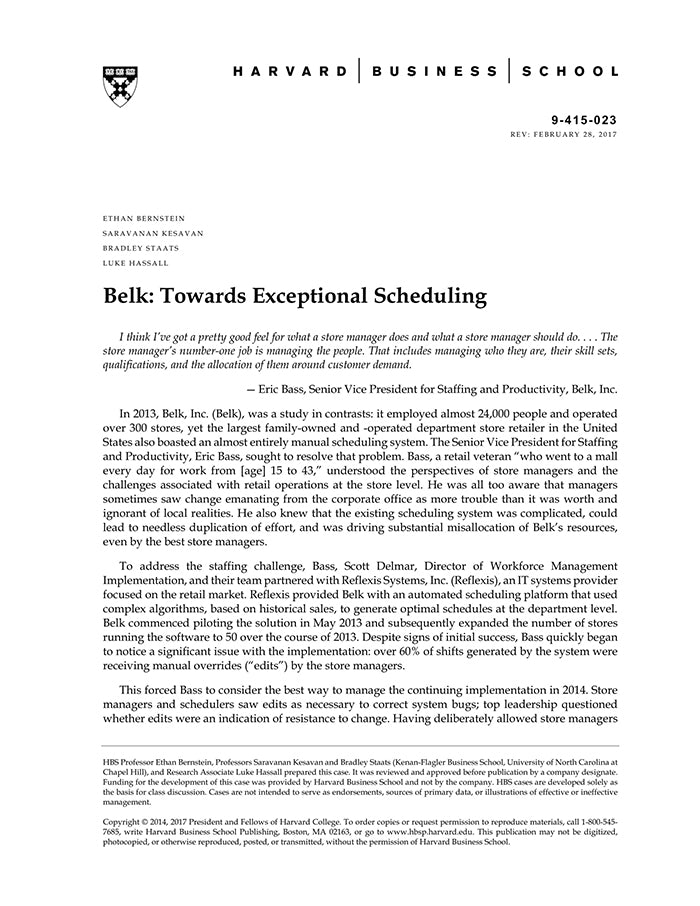Belk: Towards Exceptional Scheduling
受取状況を読み込めませんでした
With 24,000 staff and over 300 stores, Belk Inc. sought to replace its entirely manual labor scheduling system with an automated software solution from Reflexis. Belk hoped the upgrade would simplify scheduling, reduce time employees spent in non-customer-facing roles, and result in improved allocation of resources through the use of big data, thereby increasing sales productivity. Like many other retailers, Belk expected the benefits from automated scheduling software to be significant. But unlike other retailers who took an iron hand approach to push compliance, Belk's implementation permitted store managers "edit" the system to "fix" the "bugs" in the automated schedules-seeking not to replace labor but rather inform it. Belk commenced piloting the solution in May of 2013 and subsequently expanded the number of stores running the software to 50 over the course of 2013. Despite signs of initial success with the stores running the scheduling solution, Bass quickly began to notice a significant issue with the implementation: over 70% of shifts generated by the system were receiving manual overrides ("edits") by the store managers. Store managers believed the edits were necessary to remain responsive to local needs-and were, indeed, productive. Senior executives were skeptical, concerned that edits indicated resistance to productive change, and unsure of why Belk had spent so much time and money on an automated system only to have the stores override it. Having deliberately allowed store managers and lead schedulers to override the system, SVP Eric Bass (a retail store veteran who worked his way up to corporate) now needed to understand how and why they were doing so, and make sure that those edits were being made in a constructive manner. In a disagreement between human and machine, Belk allowed humans to win by design by giving them the right to edit the 'optimized' schedules. The case allows students to go deep into the question (qualitatively and quantitatively) and drive a detailed conversation about whether the result of Belk's flexible "edit" policy was a more or less effective implementation.
【書誌情報】
ページ数:16ページ
サイズ:A4
商品番号:HBSP-415023
発行日:2014/9/10
登録日:2014/9/19


